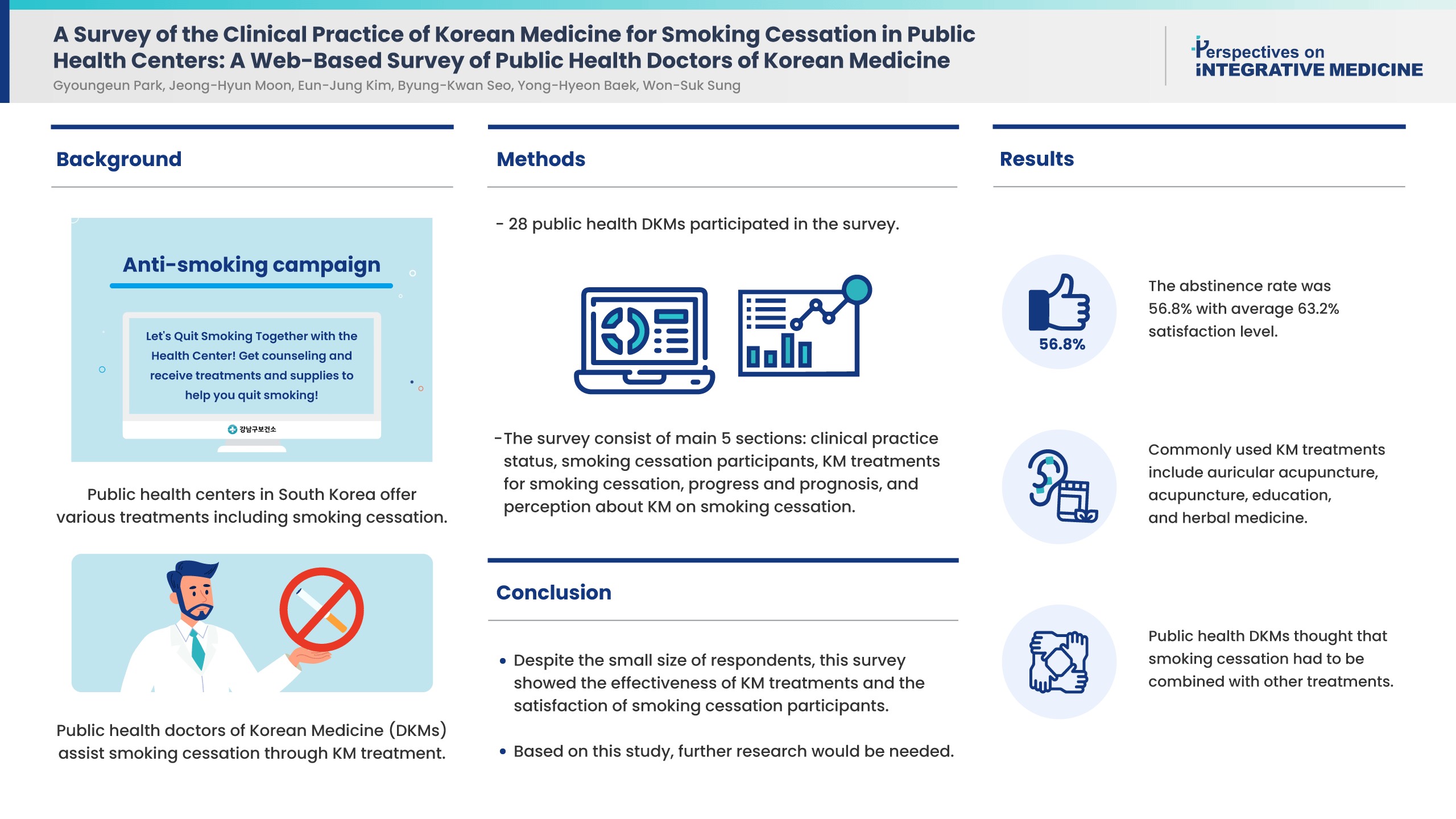- A Survey of the Clinical Practice of Korean Medicine for Smoking Cessation in Public Health Centers: A Web-Based Survey of Public Health Doctors of Korean Medicine
-
Gyoungeun Park, Jeong-Hyun Moon, Eun-Jung Kim, Byung-Kwan Seo, Yong-Hyeon Baek, Won-Suk Sung
-
Perspect Integr Med. 2024;3(1):45-50. Published online February 22, 2024
-
DOI: https://doi.org/10.56986/pim.2024.02.006
-
-
 Graphical Abstract Graphical Abstract
 Abstract Abstract
 PDF PDF Supplementary Material Supplementary Material
 - Background
In South Korea, public health centers provide smoking cessation (SC) treatments including behavioral therapy and nicotine replacement treatment. Also, public health doctors of Korean medicine (PHDKMs) are providing Korean Medicine (KM) treatments. Several studies have reported the clinical usefulness of KM treatment, but in this study, the opinion of PHDKMs was explored to examine the current KM treatments for SC.
Methods
A web-based survey (Moaform) of the treatment for SC by PHDKMs consisted of 5 main sections including clinical practice status, SC participants, KM treatments for SC, progress and prognosis, and perception of KM. The survey was emailed twice to 621 PHDKMs on April 6 to 20, 2022. The frequencies and percentages of each question were calculated.
Results
There were 28 PHDKMs who participated in the survey. Among them, over 90% of PHDKMs had treated ≤ 10 SC participants, and about 10% of PHDKMs had treated 11-20 participants. The abstinence rate was 56.8% with an average 63.2% level of satisfaction in the treatment. Typically used, and recognized as important KM treatments, were auricular acupuncture, acupuncture, education, and herbal medicine. While auricular acupuncture and education were perceived as convenient KM treatment, PHDKMs thought that SC could not be achieved with KM treatment alone and needed be combined with other treatments.
Conclusion
This survey showed the effectiveness of KM treatments with withdrawal symptoms, and treatment satisfaction of SC participants. Respondents also thought that KM treatment combined with other treatments is more effective than KM monotherapy. Based on this small study, further research would be needed.
|